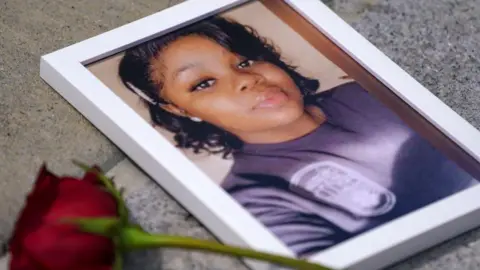A recent case in the ongoing struggle for justice within the criminal justice system has seen former Kentucky police officer Brett Hankison sentenced to a 33-month prison term. This sentencing comes in relation to the botched raid on the home of Breonna Taylor, a 26-year-old Black woman who was fatally shot by police in March 2020. The incident gained widespread notoriety and became a pivotal event for the Black Lives Matter movement, raising significant awareness about police conduct and systemic racism in the United States.
In November 2024, Hankison was found guilty by a federal jury of violating Breonna Taylor’s civil rights through excessive use of force during the raid. Despite the gravity of his actions, he received a sentence considerably shorter than what could have been handed down; the maximum penalty for the charge he was convicted of could have been life imprisonment. This sentencing reflects a stark contrast between the perceived severity of his crime and the repercussions he faced, caused partly by the political climate surrounding the case.
The situation intensified when the Trump administration asked the judge for a mere one-day prison sentence for Hankison, suggesting a leniency that angered many, including Taylor’s family and advocates for justice reform. They argued that a sentence of just one day would send a message that law enforcement officers, especially those who are white, could violate the civil rights of Black Americans with little fear of serious consequences. Such sentiments echo a broader frustration with a criminal justice system that often appears to safeguard those within its ranks rather than hold them accountable for their actions.
Hankison’s conviction marks him as the sole officer charged and found guilty in relation to the tragic events of Taylor’s death. During the early morning raid at Taylor’s home, officers executed a no-knock warrant, which allowed them to enter without announcing themselves. The raid was based on allegations that Taylor’s former boyfriend was using her residence to stash illegal drugs. When officers forced their way inside, her boyfriend, Kenneth Walker, fired a shot in self-defense—believing intruders were entering the home.
This action resulted in a torrent of gunfire from police, with officers shooting 32 bullets into Taylor’s apartment. Hankison discharged 10 rounds into the unit, but his bullets did not hit anyone inside Taylor’s home; rather, they penetrated neighboring apartments, endangering innocent lives. Prosecutors argued that Hankison’s reckless behavior severely violated a fundamental rule regarding the use of deadly force: if officers cannot see the person they are shooting at, they should not pull the trigger.
As protests erupted outside the courthouse following the verdict, demonstrators called out Taylor’s name, underscoring the broader societal implications of her death. The verdict’s announcement was met with both relief and outrage, illustrating the deeply polarized reactions to issues of accountability in law enforcement.
The case has broader implications for ongoing discussions around police reform at both state and federal levels. In the wake of Taylor’s death, the U.S. Justice Department has faced scrutiny regarding its handling of civil rights violations by police agencies. In particular, the Biden administration had previously prioritized investigations into police misconduct, whereas the Trump administration has taken steps to retract many of those initiatives and investigations.
These contrasting approaches highlight a significant shift in policy regarding police oversight and accountability. As the community grapples with the aftermath of Breonna Taylor’s death and the legal proceedings that followed, many advocates continue to call for fundamental changes to the system to ensure that such tragedies do not recur. The implications of Hankison’s case serve as a microcosm of the ongoing struggle for justice and equality within the American legal landscape.











